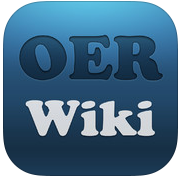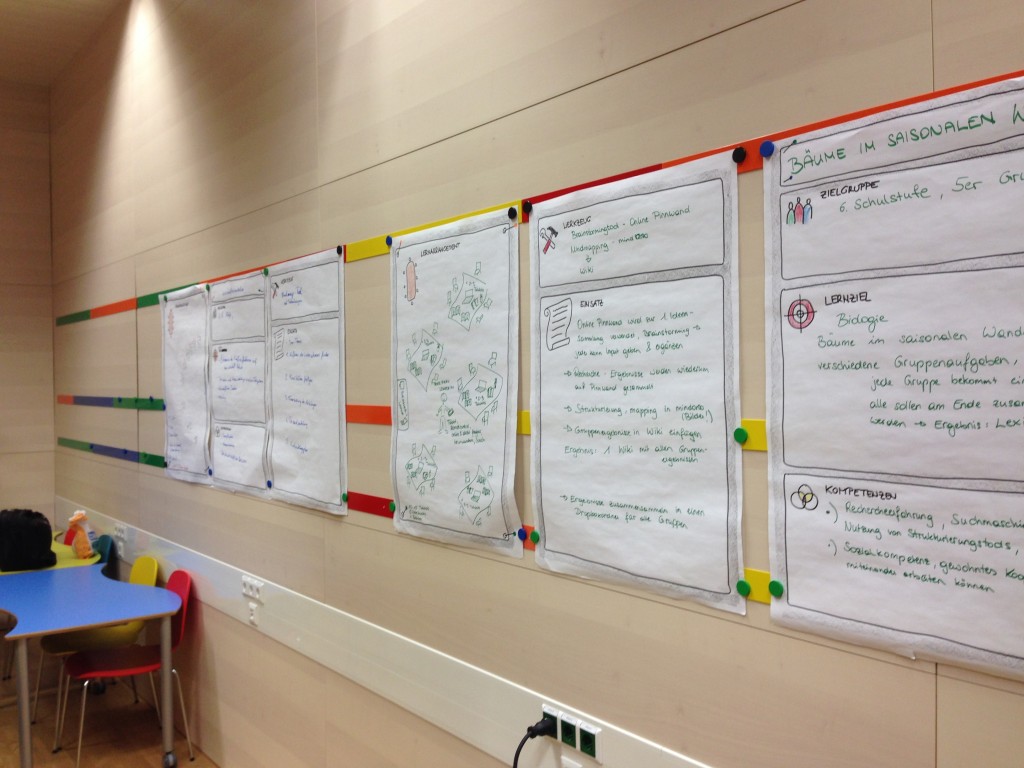My talk at the 5th International Workshop on Life-long Learning within European Framework about “The TU Graz E-Book Strategy / Проект «Электронная книга» в стратегии обучения с ис- пользованием компьютерных технологий в техническом уни- верситете г. Грац” is now online available – the slides are already here available:
[presentation] Zeig doch mal! – Tipps für die Erstellung von Lernvideos in Lege- und Zeichentechnik
Unsere heutige Präsentation im Rahmen der iUNIG-Tagung über „Zeig doch mal! – Tipps für die Erstellung von Lernvideos in Lege- und Zeichentechnik“ ist nun online verfügbar. Viel Spaß mit unseren Erfahrungen in der Videoerstellung:
Klicken Sie auf den unteren Button, um den Inhalt von www.slideshare.net zu laden.
[vodcast] Haben LehrBÜCHER noch Zukunft?
Mein Vortrag bei der letztjährigen DINI-Tagung in Stuttgart zum Thema „Haben LehrBÜCHER noch Zukunft?“ steht nun als Aufzeichnung (wie auch alle anderen) zur Verfügung. Die Folien sind ja bereits hier veröffentlicht.
[publication] Universitäten in sozialen Netzwerken
Unser Beitrag über „Universitäten in sozialen Netzwerken – Wie Hochschulen die Chancen und Herausforderungen dieser sozialen Medien nutzen können“ in der neuesten Ergänzungslieferung des Handbuchs E-Learning ist nun erschienen.
Zusammenfassung:
Soziale Medien haben längst die Grenze zur Allgegenwärtigkeit erreicht und sind heutzutage nicht nur in unserem Privatleben alltäglicher Begleiter, sondern werden auch von Unternehmen, Organisationen und anderen nicht reellen Personen für die unterschiedlichsten Zwecke eingesetzt. Zunehmend versuchen auch Bildungs- und Ausbildungseinrichtungen diese Medien für sich zu erschließen. Neue Handlungsfelder und vor allem auch neue Wege zur Selbstdarstellung werden dabei erprobt und auf einen potenziellen Mehrwert untersucht. Kernpunkt ist die Frage, wie Social-Media-Aktivitäten aussehen sollen, um als erfolgreich und wertvoll angesehen zu werden, welche Einflussfaktoren sich auf die Wahrnehmung der Nutzer auswirken und welche internen Mechanismen den sozialen Medien zugrunde liegen und so in weiterem Sinne auch deren Inhalte bedingen. Um diesen Fragen nachzugehen, wurden für den Bereich der Öffentlichkeitsarbeit mittels sozialer Netzwerke an Hochschulen Untersuchungen angestellt, die die Wirksamkeit unterschiedlicher Herangehensweisen analysierten und versuchten, daraus Handlungsfelder für zukünftige Social-Media-Aktivitäten an Universitäten und Fachhochschulen zu identifizieren. Dabei stellte sich heraus, dass die Beteiligung der Nutzer durchaus mit unterschiedlichen Eigenschaften einzelner Social-Media-Aktivitäten zusammenhängt und dass zum Beispiel der Veröffentlichungszeitpunkt, die verwendeten Elemente eines Posts und vor allem der Inhalt besonders hervortreten. Die Anzahl der Postings pro Woche und die Textlänge sind jedoch weniger relevant. Allgemein lässt sich sagen, dass unübliche Posting-Zeitpunkte, eine Kombination aus Bild, Text und Hyperlink sowie soziale, teilweise emotionale, teilweise auch stark originalitätsentbundene, konventionalisierte Inhalte, die die Gemeinschaft hervorheben und eine Kontaktpflege innerhalb ihrer ermöglichen, die meistgelesenen und involvierendsten Beiträge in sozialen Netzwerken darstellen.
Universitäten in sozialen Netzwerken – Wie Hochschulen die Chancen und Herausforderungen dieser sozialen Me… by Martin
Klicken Sie auf den unteren Button, um den Inhalt von www.scribd.com zu laden.
Zitation: Frey, J., Ebner, M. (2014) Universitäten in sozialen Netzwerken – Wie Hochschulen die Chancen und Herausforderungen dieser sozialen Medien nutzen können. In K. Wilbers & A. Hohenstein (Hrsg.), Handbuch E-Learning. Expertenwissen aus Wissenschaft und Praxis – Strategien, Instrumente, Fallstudien. Köln: Deutscher Wirtschaftsdienst (Wolters Kluwer Deutschland), 50. Erg.-Lfg. Jänner 2014. pp 1-22. https://www.personalwirtschaft.de/elearning
[workshop] Social Media and Mobile Learning
Im Rahmen des CAS eLearning Zertifikatkurses darf ich auch heuer das Modul „Sociale Media Learning & Mobile Learning“ abhalten. Die dafür notwendigen Unterlagen sind hier nochmals übersichtlich dargestellt.
VORMITTAG: SOCIAL MEDIA LEARNING
- „Einstieg“: Social Media ist alles nur heiße Luft hinterfrägt den Begriff Web 2.0
- Der MASTOR-Check (zur Einschätzung der Voraussetzungen für das Arbeiten und Lernen mit dem Web 2.0)
- Social Media Learning (Präsentation) ist der Hauptteil
- Der MONSTA-Check (zur Einschätzung der Voraussetzungen für das Lehren mit dem Web 2.0)
NACHMITTAG: MOBILE LEARNING
Als weiterführende Literatur wird das Lehrbuch für Lernen und Lehren mit Technologien empfohlen mit den entsprechenden Kapiteln (Kollaborative Werkzeuge, Mobile Learning), sowie das Kapitel „Web 2.0 als Basis für CSCL-Umgebungen„.
Zur Info für Nicht-Teilnehmer/innen: Es handelt sich um einen ganztägigen Workshop.
[presentation] Ist das Lehrmittel der Zukunft noch ein Buch?
Im Rahmen des 6. Lehrmittelsymposiums bin ich gebeten worden über unsere E-Book-Aktivitäten zu referieren. Unter anderem werde ich auch die Machbarkeitsstudie vorstellen und zeigen welche interaktiven Möglichkeiten mit ePUB3 bereits möglich sind.
Hier einmal die Vortragsfolien dazu:
Klicken Sie auf den unteren Button, um den Inhalt von www.slideshare.net zu laden.
[OER] OER für den Geschichteunterricht
 Im Rahmen einer Projektarbeit hat Gernot sich mit dem Thema „Open Educational Resources für den Geschichtsunterricht“ auseinandergesetzt und nach OER-Angeboten im Netz recherchiert. 125 Angebote schaute er sich näher an, nur wenige – nämlich 19 – konnten schlussendlich in seine Liste aufgenommen werden.
Im Rahmen einer Projektarbeit hat Gernot sich mit dem Thema „Open Educational Resources für den Geschichtsunterricht“ auseinandergesetzt und nach OER-Angeboten im Netz recherchiert. 125 Angebote schaute er sich näher an, nur wenige – nämlich 19 – konnten schlussendlich in seine Liste aufgenommen werden.
Das Ergebnis ist nun im OER-Wiki abgebildet und frei zugänglich. Sollte es Ergänzungen geben bitte einfach melden 🙂 .
[lecture] AK Technology Enhanced Learning – Einheit 5
Die fünfte Einheit des Seminars widmete sich dem Thema „Einsatz von kollaborativen Werkzeugen„. Nach einem kurzen Input zusammengefasst aus dem L3T Kapitel, haben wir mithilfe von drei Plakaten über die Möglichkeiten von solchen Tools nachgedacht. Wie immer so leicht ist der Transfer nicht wirklich und auch die mediendidaktischen Überlegungen sind einmal durchzudenken. Schlussendlich konnte sich das Ergebnis aber auch sehen lassen. Hier einmal die Folien dazu:
Klicken Sie auf den unteren Button, um den Inhalt von www.slideshare.net zu laden.
Hier das Bild der fertigen Plakate – interessant und schön sind sie geworden:
[publication] Lehrveranstaltungsaufzeichnungen
Im Rahmen der Zeitung Mb Aktuell der Fakultät für Maschinenbau an der TU Graz hab ich einen Kurzbericht zu unseren Lehrveranstaltungsaufzeichnungen erstellt.
Lehrveranstaltungsaufzeichnungen by Martin
Klicken Sie auf den unteren Button, um den Inhalt von www.scribd.com zu laden.
Zitation: Ebner, M. (2013) Lehrveranstaltungsaufzeichnungen. Mb Aktuell 12/13. Graz. S. 6.7
[interview] Per Videokonferenz den/die ExpertIn ins Seminar holen
Sandra hat vor wenigen Tagen einen Vortrag in Linz zu „Mit sozialen Medien (Lern-)transfer unterstützen“ gehalten und hat mich kurz dazu befragt wie ich es sehe, dass es heute so unkompliziert ist externe ExpertInnen in ein Seminar hereinzuholen. Hier mein Kurzstatement:


